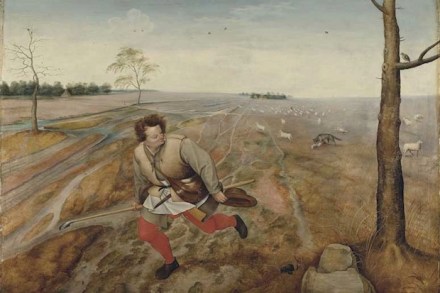The Spectator at war: Stamp of disapproval
From The Spectator, 21 November 1914: If nations obtain the Governments that they deserve, it may be hoped that they do not always deserve their postage-stamps. If that were so, we should be a less deserving nation than we were in the twenty or thirty years which followed the introduction of “adhesive labels” in 1840, when we had some of the finest stamps that have ever been issued. The black penny, the red penny, and, above all, the blue twopenny stamps of 1840 to 1880 have never been surpassed for strength of colour and simplicity of design. When 1880 brought the brick-red penny, and 1881 began a pale procession of

















